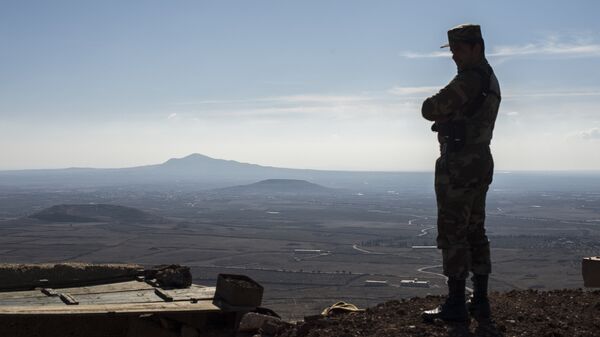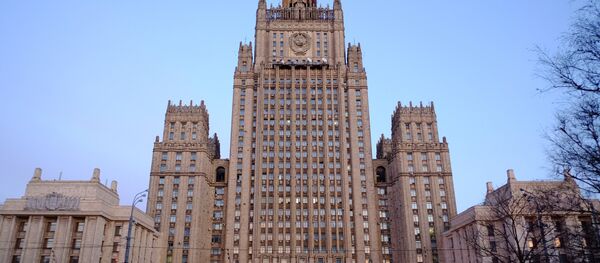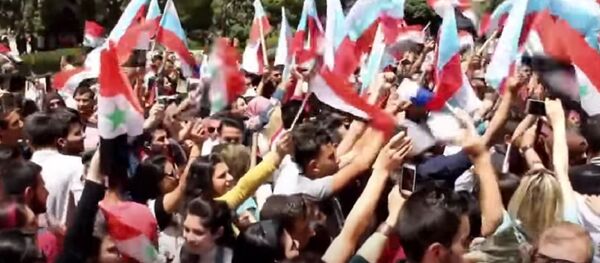MOSCOW (Sputnik) — The establishment of safe zones in Syria proposed by Russia and signed by it in a memorandum alongside two co-guarantors Turkey and Iran could impact at least 2.6 million people, UN Special Envoy for Syria Staffan de Mistura said Thursday.
"When you talk about four of the de-escalation areas, this has the potential of affecting — hopefully positively from a humanitarian point of view — at least 2.6 million people," de Mistura said at a briefing in Geneva.
The memorandum on de-escalation zones took effect on May 6.
Russia's deputy defense minister said on May 5 that the implementation of the memorandum on de-escalation zones would put an end to the civil war.
The establishment of Syrian de-escalation zones gives hope for humanitarian aid, adviser to the UN special envoy for Syria on humanitarian issues Jan Egeland said.
"I think there is hope here, and it is connected now to the memorandum agreed in Astana agreed on May 4," Egeland said at the briefing.
He quoted the agreement as saying "in no uncertain terms" that the memorandum envisions conditions for rapid, safe and unhindered humanitarian access and medical aid in addition to a cessation of hostilities across the four safe zones.
"Russia, Turkey and Iran explained to us today and yesterday — I also met them — that they will work very openly, proactively with the United Nations and the humanitarian partners to implement this humanitarian agreement," Egeland said.
De Mistura confirmed that the next round of "businesslike" intra-Syrian talks in Geneva will be held on May 16 with a target end date of May 19.
"Let us confirm that we are preparing the intra-Syrian new round of talks next week. They will be starting on [May] 16. We are aiming as a target toward [May] 19," he said.
He said the talks aimed to "hit the iron while it's hot" following the May 3-4 Astana talks attended by the UN.
"There have been some outcomes which we find extremely potentially promising," de Mistura said, referring to the ceasefire and de-escalation zones memorandum signed by guarantors Russia, Turkey and Iran in the Kazakh capital.
The civil war in Syria has been lasting for around six years with government troops fighting against numerous opposition factions and terror organizations such as al-Nusra Front and Daesh, outlawed in Russia.
The nationwide Syrian ceasefire regime was introduced on December 30, 2016. Terrorist organizations are not part of the ceasefire.



